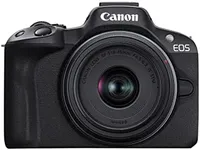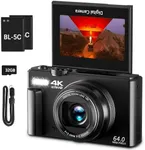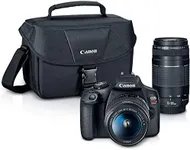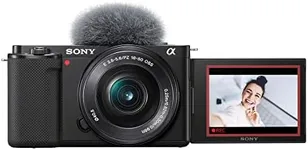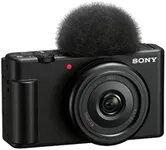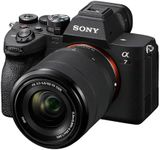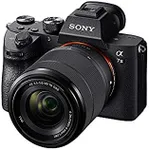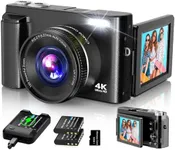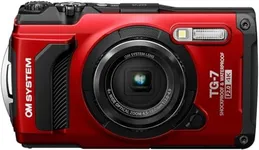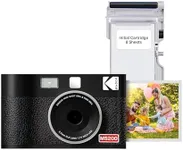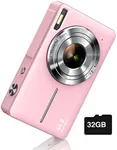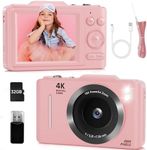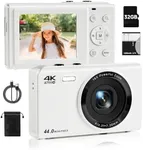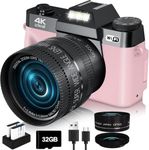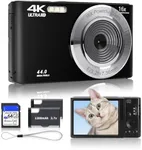Buying Guide for the Best Starter Camera
Choosing a starter camera can be an exciting yet overwhelming experience, especially with the wide variety of options available. The key is to focus on what you need the camera for and how you plan to use it. Whether you're interested in photography as a hobby, want to capture family moments, or are looking to explore professional photography, understanding the key specifications will help you make an informed decision. Here are some important specs to consider when picking a starter camera.Sensor SizeThe sensor size is crucial because it affects the image quality, depth of field, and low-light performance. Larger sensors generally produce better image quality. Common sensor sizes include Full Frame, APS-C, and Micro Four Thirds. Full Frame sensors are the largest and offer the best quality, but they are also more expensive and bulkier. APS-C sensors are smaller but still provide excellent quality and are more affordable and compact. Micro Four Thirds sensors are even smaller and more portable, making them ideal for travel and casual photography. Choose a sensor size based on your need for image quality versus portability.
MegapixelsMegapixels refer to the resolution of the camera's sensor, indicating how many millions of pixels the camera can capture. Higher megapixels mean more detail in your photos, which is important if you plan to print large photos or crop images. For most beginners, a camera with 16-24 megapixels is more than sufficient. If you are not planning to print large photos or do heavy cropping, you don't need to prioritize a very high megapixel count.
Lens CompatibilityLens compatibility determines the variety of lenses you can use with your camera. Interchangeable lens cameras, like DSLRs and mirrorless cameras, offer the flexibility to switch lenses based on your needs, from wide-angle to telephoto. If you want to explore different types of photography, such as macro or portrait, consider a camera with a wide range of compatible lenses. For simplicity and convenience, a camera with a good quality built-in lens might be sufficient for beginners.
Autofocus SystemThe autofocus system helps you quickly and accurately focus on your subject. A good autofocus system is essential for capturing sharp images, especially in fast-moving or low-light situations. Cameras with more autofocus points and advanced tracking features provide better performance. For beginners, a camera with a reliable and easy-to-use autofocus system will make it easier to capture great shots without much hassle.
Video CapabilitiesIf you plan to shoot videos, consider the camera's video capabilities. Look for features like resolution (Full HD or 4K), frame rates, and additional functionalities like image stabilization and microphone input. Full HD is sufficient for most casual video recording, but if you want higher quality or plan to do more serious videography, 4K might be worth considering. Choose based on how important video recording is to you and what quality you need.
Ease of UseEase of use is particularly important for beginners. Look for a camera with a user-friendly interface, intuitive controls, and helpful features like guided modes or tutorials. Some cameras offer touchscreen controls, which can make navigation simpler. A camera that is easy to learn and operate will help you enjoy the process of photography without getting frustrated by complex settings.
Battery LifeBattery life determines how long you can use your camera before needing to recharge or replace the battery. Longer battery life is beneficial for extended shooting sessions, travel, or events. DSLRs typically have longer battery life compared to mirrorless cameras due to their optical viewfinders. Consider how often you plan to use the camera and whether you need it to last through long outings without frequent recharging.
ConnectivityConnectivity options like Wi-Fi, Bluetooth, and NFC allow you to easily transfer photos to your smartphone or computer, share them on social media, or control the camera remotely. These features can be very convenient for beginners who want to quickly share their photos or use their camera in creative ways. Decide if these connectivity features are important for your workflow and sharing habits.
